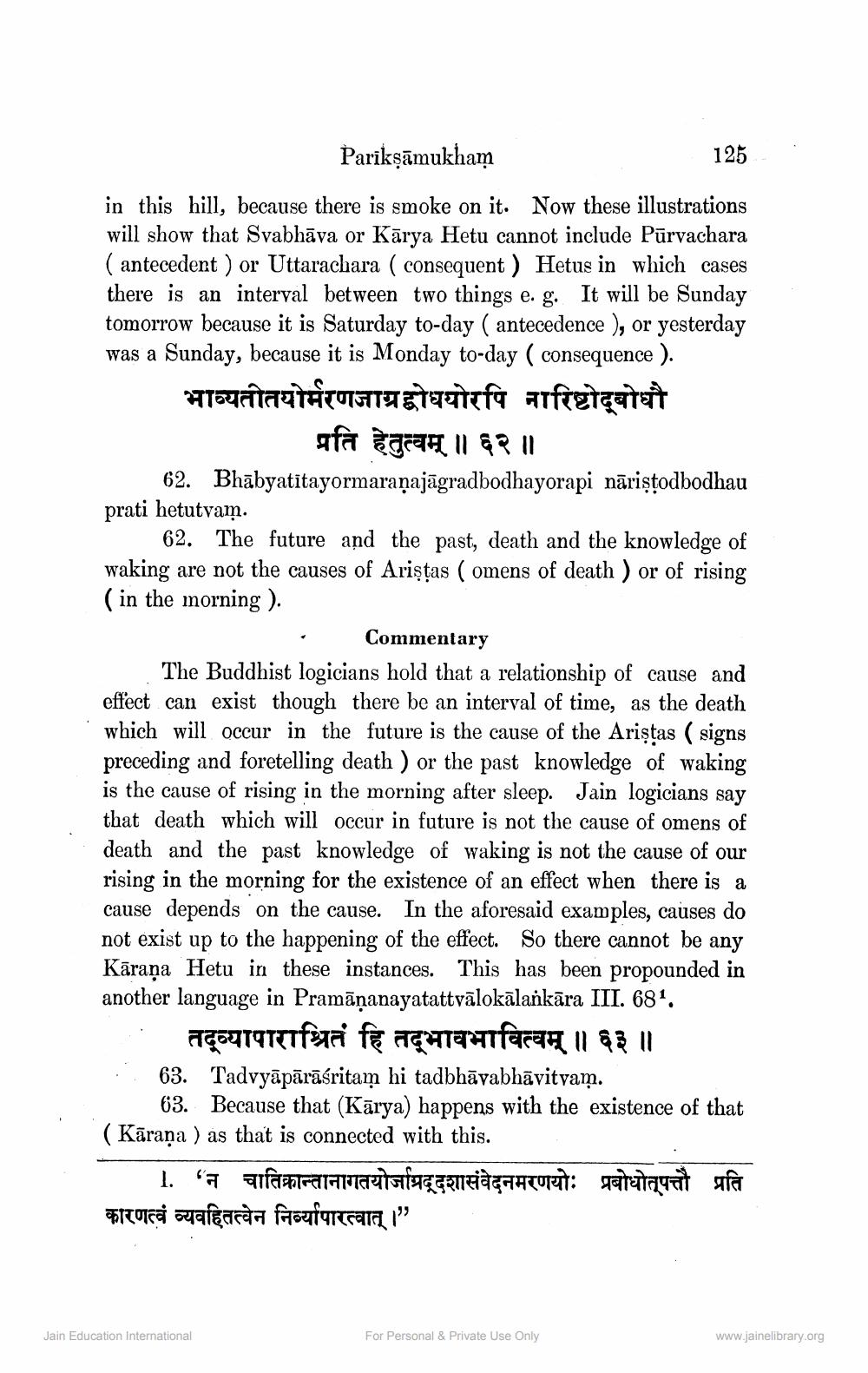________________
Parikṣāmukham
in this hill, because there is smoke on it. Now these illustrations will show that Svabhāva or Kārya Hetu cannot include Pūrvachara ( antecedent) or Uttarachara (consequent) Hetus in which cases there is an interval between two things e. g. It will be Sunday tomorrow because it is Saturday to-day (antecedence), or yesterday was a Sunday, because it is Monday to-day (consequence). भाव्यतीतयोर्मरणजाग्र होधयोरपि नारिष्टोद्बोधौ प्रति हेतुत्वम् ॥ ६२ ॥
62. Bhabyatitayormaraṇajāgradbodhayorapi nariṣṭodbodhau prati hetutvam.
62. The future and the past, death and the knowledge of waking are not the causes of Aristas (omens of death) or of rising (in the morning ).
125
Commentary
The Buddhist logicians hold that a relationship of cause and effect can exist though there be an interval of time, as the death which will occur in the future is the cause of the Aristas (signs preceding and foretelling death) or the past knowledge of waking is the cause of rising in the morning after sleep. Jain logicians say that death which will occur in future is not the cause of omens of death and the past knowledge of waking is not the cause of our rising in the morning for the existence of an effect when there is a cause depends on the cause. In the aforesaid examples, causes do not exist up to the happening of the effect. So there cannot be any Kāraṇa Hetu in these instances. This has been propounded in another language in Pramāṇanayatattvālokālaṁkāra III. 681.
तदूव्यापाराश्रितं हि तद्भावभावित्वम् ॥ ६३ ॥
63. Tadvyāpārāśritam hi tadbhāvabhāvitvam.
63. Because that (Karya) happens with the existence of that (Karana) as that is connected with this.
1. ' न चातिक्रान्तानागतयोर्जाप्रदूदशासंवेदनमरणयोः प्रबोधोत्पत्तौ प्रति कारणत्वं व्यवहितत्वेन निर्व्यापारत्वात् ।”
Jain Education International
For Personal & Private Use Only
www.jainelibrary.org




